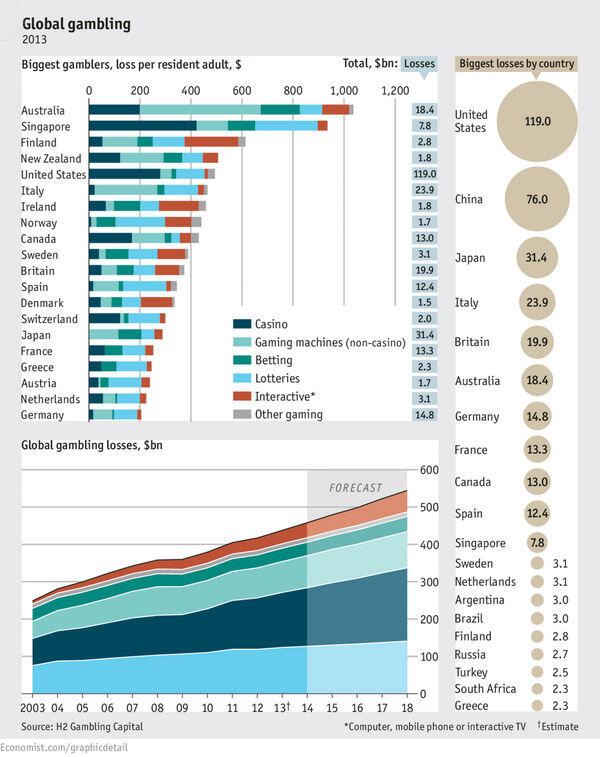Are online casinos more addictive than traditional casinos?
Are online casinos more addictive than traditional casinos?
According to Sheldon Adelson the answer is yes.
According to some journalists the answer is yes, and it’s children who are ones becoming addicted.
According to findings from a series of studies conducted by the Harvard Medical School’s Division on Addiction, the answer is no.
Since the advent of online casino gambling there have been concerns that its ease of accessibility would prove dangerous, with warnings ranging from a mild increase in the incidence of problem gambling to the wholesale destruction of society. Some of these concerns were pretty justified. When first introduced to online casinos I remember thinking, ‘wow, traditional casinos are history’. A similar thought followed my first introduction to online porn…’wow, adult video shops are history’. One of these predictions was spot on.
First a little perspective…the numbers
Yes you can play online (casinos) at home, at the office, on your PC, on your iPad, on your phone, on the train, in the park, etc. But despite this ridiculous level of accessibility (and it is ridiculous) the fact remains that online gambling, now very much a mature industry, still comprises a small fraction of total gambling.
H2 Gambling Capital put that fraction at 7%, or around USD$35 billion out of an estimated total worldwide gambling loss figure of USD$475 billion in 2013. The biggest chunk of losses is still attributable to traditional casinos (still very much a growth industry, outside Atlantic City), closely followed by the good old lottery (perceived by many as not even gambling, and often marketed this way).

2013 worldwide gambling. Source: H2 Gambling Capital, Economist.com
When it comes to gambling, online is a long way from ever being the dominant medium. Probably never will be (wouldn’t confidently say the same about porn).
Harvard Medical School’s problem gambling study
USD$35 billion is still a very big number so clearly a lot of people are gambling online, and most of them are losing money doing it. A proportion would fall into the category described by the experts as problem, pathological or addicted gamblers. But is it more addictive than traditional forms of gambling?
This is one of the questions Harvard Medical School set out to answer with a series of studies aimed at providing policy makers with reliable empirical research on Internet gambling.
The studies were conducted in partnership with Bwin. I know what you’re thinking…this is like a Philip Morris sponsored study claiming smoking has no harmful health effects.
Not quite the same. Harvard don’t run their own online casino/sportsbook so a partnership with a big operator was necessary to gain access to a suitably large data set. That’s where Bwin came into the picture. They provided access to customer data over a two year period and the guys at Harvard did all the number crunching, analysis and drew the conclusions.
The results were interesting.
The playing habits of 4,000 online casino gamblers were examined. Their median betting frequency over a period of nine months was found to be once every two weeks. Median loss outcome was around a 5.5% loss of all money wagered.
The betting habits of 40,000 sports bettors were examined. Median bet frequency and amount was found to be 2.5 bets of $5.50 each, every fourth day.
Considering all gambling categories, it was found that the vast majority of players gambled infrequently and in moderation. There was of a subset of players (between 1 percent and 5 percent) found to exhibit ‘intense gambling behavior’ that far exceeded that of the rest of the sample. This is in line with most other forms of gambling activity.
The outcomes support the contention contained in a 2011 paper (Disordered Gambling: Etiology, Trajectory and Clinical Considerations, at page 6), written by then Harvard Medical School staffers Howard Shaffer Ph.D. and Ryan Martin Ph.D. that,
“contrary to predictions derived from the exposure model, the prevalence of PG [pathological gambling] has remained stable or been influenced by adaptation during the past 35 years despite an unprecedented increase in opportunities and access to gambling.”
Civilisation as we know it isn’t coming to an end just yet!



Leave a Reply
Want to join the discussion?Feel free to contribute!